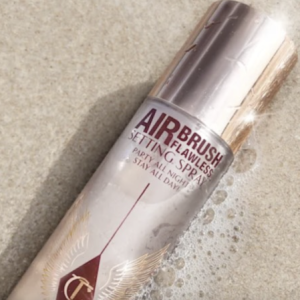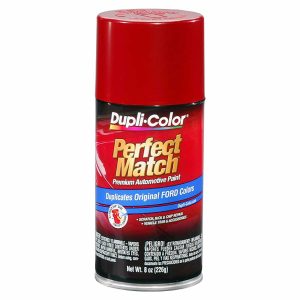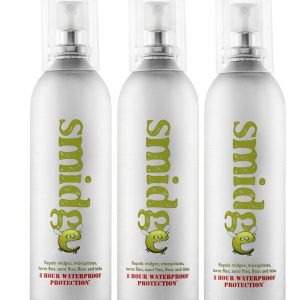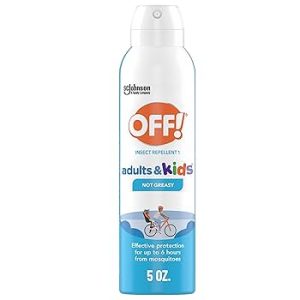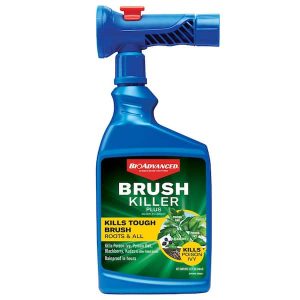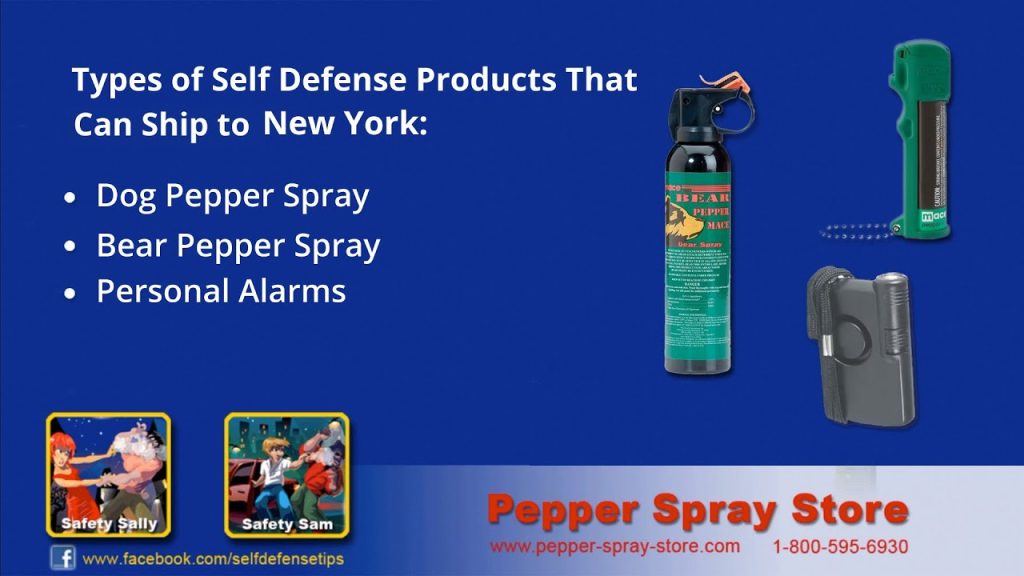
is pepper spray legal in nyc ? .The legality of self-defense sprays containing oleoresin capsicum, commonly referred to as pepper spray, within New York City is subject to specific regulations. These regulations dictate who may legally possess and use such sprays, and under what circumstances. Unauthorized possession or misuse can result in legal penalties.
Understanding these regulations is crucial for residents and visitors alike. Legal possession and use can provide a means of self-protection, particularly in situations where personal safety is threatened. Historically, the legal framework has evolved to balance the right to self-defense with the need to prevent misuse and potential harm to others.
This article will examine the detailed provisions of New York City law pertaining to self-defense sprays, including permissible ingredients, purchasing requirements, restrictions on carry and use, and potential legal consequences for violations. It will further explore relevant case law and provide practical guidance for responsible and lawful use within the city.
1. Permitted Ingredients
The specific composition of self-defense sprays is a primary determinant of their legality within New York City. The permissible ingredients, specifically the concentration of oleoresin capsicum (OC), are strictly regulated to ensure both effectiveness for self-defense and minimization of potential harm.
- Oleoresin Capsicum (OC) ConcentrationThe concentration of OC is a key factor. New York law specifies a maximum allowable percentage to prevent excessive or debilitating effects. Sprays exceeding this concentration are considered illegal and subject to seizure, and possession can lead to criminal charges. The permitted range seeks to balance defensive capability with safety concerns.
- Propellants and CarriersThe substances used to propel and carry the OC solution are also subject to scrutiny. While not explicitly detailed with specific chemical compounds, regulations implicitly require that these substances be non-toxic and non-flammable to minimize risks associated with use. Use of dangerous or prohibited propellants would render the spray illegal.
- Dyes and Marking AgentsSome formulations include dyes or marking agents intended to assist in identifying an assailant post-attack. While not strictly mandated, the inclusion of such agents may be considered favorably in investigations. However, these additives must also be non-toxic and non-permanent to avoid causing lasting harm or disfigurement.
- Exclusions of Prohibited SubstancesCrucially, the presence of any prohibited substances renders the spray illegal. This includes, but is not limited to, irritants beyond OC, such as tear gas (CS or CN), or any component designed to cause permanent injury or incapacitation. The intent is to permit only sprays designed for temporary incapacitation, not lasting harm.
Compliance with these restrictions on permitted ingredients is essential for ensuring that a self-defense spray is legal in New York City. Failure to adhere to these regulations can result in legal penalties, emphasizing the importance of purchasing sprays from reputable sources that guarantee compliance with local laws.
2. Valid Identification
The legal acquisition of self-defense spray in New York City is inextricably linked to the presentation of valid identification. This requirement serves as a cornerstone of the regulatory framework governing the sale and possession of such devices. The act of providing legally recognized identification establishes proof of age and residency, both of which are prerequisites for lawful purchase. Without acceptable identification, a transaction cannot be legally completed. This measure aims to prevent underage individuals and those residing outside of the jurisdiction from obtaining pepper spray, thereby controlling its distribution and minimizing potential misuse.
The specific types of identification deemed valid are generally defined as government-issued photo identification, such as a driver’s license or a non-driver identification card. These documents must be current and accurately reflect the purchaser’s age and address. Retailers authorized to sell pepper spray are legally obligated to verify the authenticity and validity of the presented identification before completing a sale. Failure to comply with this verification process can expose retailers to legal repercussions, including fines and the revocation of their sales permits. For instance, if a store sells pepper spray to an individual presenting a fraudulent or expired ID, both the purchaser and the retailer may face criminal charges.
In summary, the provision of valid identification is a critical component in determining whether the purchase of pepper spray is legal within New York City. It serves to enforce age restrictions, confirm residency, and hold retailers accountable for adhering to the established regulations. The practical significance of this requirement lies in its role in promoting responsible ownership and usage of self-defense sprays, while simultaneously deterring illegal acquisition and misuse. This measure helps ensure that pepper spray remains a tool for legitimate self-defense rather than an instrument of unlawful activity.
3. Restricted Areas
The legality of possessing self-defense spray in New York City is significantly curtailed by the designation of specific “Restricted Areas.” Even if an individual otherwise complies with all other requirements for legal possession, carrying or using such sprays within these zones constitutes a violation of the law. The existence of these “Restricted Areas” directly impacts “is pepper spray legal in nyc,” effectively creating geographic exceptions to the general permissibility. These exceptions are based on the rationale that certain locations warrant heightened security or are inherently sensitive environments where the presence of pepper spray poses an unacceptable risk.
Examples of “Restricted Areas” commonly include schools, courthouses, government buildings, and correctional facilities. Laws often explicitly prohibit pepper spray within these locations, regardless of whether the possessor has a valid reason for self-defense. The rationale behind these restrictions varies. In schools, the concern is the potential for misuse by students or the escalation of conflicts. In courthouses and government buildings, the aim is to maintain order and prevent disruptions. At correctional facilities, the rationale centers on preventing inmates from gaining access to weapons. The consequence of violating these restrictions can range from fines and confiscation of the spray to more serious criminal charges, depending on the specific circumstances and the governing jurisdiction’s penalties. For example, a person legally carrying pepper spray might face arrest if discovered with it during routine security screening at a courthouse.
Understanding these “Restricted Areas” is therefore critical for anyone seeking to comply with New York City’s laws regarding self-defense sprays. Ignorance of these designated zones is not a valid defense against prosecution. While the possession of pepper spray may be generally legal under certain conditions, this legality is contingent upon adherence to geographical limitations. The interplay between general permissibility and specific prohibitions underscores the need for clear and comprehensive knowledge of all applicable regulations. The effectiveness of pepper spray as a tool for self-defense diminishes substantially due to these restrictions, particularly in urban environments where access to some “Restricted Areas” may be unavoidable.
4. Self-Defense Only
The principle of “Self-Defense Only” forms a cornerstone of the legal framework governing the use of self-defense sprays within New York City. Its strict adherence directly determines whether an application of such a spray is lawful, irrespective of whether the initial possession of the spray itself is permissible. This principle mandates that the deployment of pepper spray must be solely for the purpose of defending oneself or another from an imminent threat of physical harm.
- Imminent Threat RequirementThe use of pepper spray is justifiable only when faced with an immediate and credible threat of bodily harm. This necessitates a reasonable belief that physical violence is about to occur. For instance, if an individual is being physically assaulted or threatened with violence, the use of pepper spray may be considered a legitimate act of self-defense. However, using the spray as a preemptive measure in a non-threatening situation, or after a threat has subsided, would not qualify as self-defense.
- Proportionality of ResponseThe response must be proportionate to the perceived threat. This means that the level of force used in self-defense should not exceed what is reasonably necessary to neutralize the threat. If a verbal altercation occurs without any indication of imminent physical harm, the use of pepper spray would likely be deemed excessive and unlawful. The assessment of proportionality considers the severity of the threat, the size and strength of the aggressor, and any other relevant factors influencing the perceived danger.
- Duty to Retreat (Limited)New York law generally imposes a limited duty to retreat before resorting to physical force, including the use of pepper spray. This means that if it is safe to do so, an individual should attempt to avoid confrontation by retreating. However, there is no duty to retreat if the individual is in their own home or is unable to safely withdraw from the situation. The determination of whether a reasonable opportunity to retreat existed is a critical factor in evaluating the legality of pepper spray deployment.
- Documentation and ReportingFollowing the use of pepper spray, it is advisable to document the incident and report it to the appropriate authorities. This includes preserving any evidence, such as witness statements or photographs, and providing a detailed account of the events leading up to the use of the spray. Reporting the incident helps to establish a clear record of the events and supports a claim of self-defense. Failure to report the incident may raise suspicion and undermine the credibility of the self-defense claim.
In conclusion, the legality of using pepper spray in New York City hinges critically on adherence to the “Self-Defense Only” principle. The courts assess these situations based on the imminence of the threat, the proportionality of the response, and the availability of safe retreat. Compliance ensures that its use is perceived as legitimate self-protection rather than an act of aggression, thereby upholding the delicate balance between individual rights and public safety. It’s important to recognize that misunderstanding this principle can lead to legal repercussions, emphasizing the need for clear understanding of what constitutes legitimate self-defense.
5. Age Requirement
The existence of an “Age Requirement” is a crucial determinant of whether the possession and purchase of pepper spray align with “is pepper spray legal in nyc.” This requirement establishes a minimum age, typically 18 years, below which individuals are prohibited from acquiring or possessing such self-defense devices. The primary rationale behind this age restriction is to prevent misuse and ensure responsible handling. Minors are often considered less capable of understanding the potential consequences of using pepper spray and may be more prone to impulsive or reckless behavior. Thus, the “Age Requirement” serves as a safeguard against inappropriate deployment.
The legal framework enforces this “Age Requirement” through various mechanisms. Retailers selling pepper spray are mandated to verify the purchaser’s age, typically by examining government-issued photo identification. Failure to comply with this verification process can result in penalties for the retailer, including fines and the suspension or revocation of their license to sell such products. Furthermore, minors found in possession of pepper spray may face legal consequences, ranging from fines to juvenile court proceedings. The impact of the “Age Requirement” is evident in preventing easy access to pepper spray by those deemed too young to handle it responsibly. For instance, in cases where retailers have failed to verify age, they have faced legal action for contributing to the illegal possession of pepper spray by a minor, illustrating the practical significance of enforcement.
In summary, the “Age Requirement” constitutes an indispensable component of the legal landscape surrounding “is pepper spray legal in nyc.” It addresses concerns related to responsible use and aims to minimize the potential for misuse by individuals who may lack the maturity or judgment necessary to handle such devices safely. This age restriction effectively contributes to a framework designed to promote responsible self-defense and minimize harm. Recognizing this direct link is essential for anyone seeking to understand and comply with the relevant laws.
6. Criminal Penalties
The imposition of “Criminal Penalties” is a direct consequence of non-compliance with the regulations governing whether “is pepper spray legal in nyc.” These penalties act as a deterrent against misuse and ensure adherence to the prescribed legal framework. The severity of these penalties varies depending on the nature of the violation.
- Unlawful PossessionPossessing pepper spray in violation of New York City regulations, such as being underage or having a spray containing prohibited substances, can lead to misdemeanor charges. These charges may result in fines, potential jail time, and a criminal record. For instance, possessing pepper spray with an excessive concentration of oleoresin capsicum will trigger legal repercussions.
- Improper UseDeploying pepper spray for purposes other than self-defense or in a manner deemed excessive can result in assault charges. If an individual uses pepper spray offensively or against someone who poses no imminent threat, the resulting criminal penalties may include significant fines, imprisonment, and a permanent criminal record. A case of using pepper spray during a minor argument, rather than an actual physical threat, would fall under this category.
- Use in Restricted AreasUsing or possessing pepper spray in designated restricted areas, such as schools or courthouses, escalates the legal consequences. This violation often carries more severe penalties than simple unlawful possession, potentially leading to felony charges, lengthy prison sentences, and a heightened social stigma. Introducing pepper spray into a school environment, regardless of intent, is an example with serious ramifications.
- Sale to MinorsSelling pepper spray to individuals under the age of 18 constitutes a serious offense, incurring significant criminal penalties. Retailers who violate this provision face substantial fines, loss of their business license, and potential imprisonment. A shop owner who fails to verify a purchaser’s age and sells pepper spray to a minor exemplifies a scenario triggering these penalties.
These potential “Criminal Penalties” underscore the importance of understanding and complying with the laws surrounding “is pepper spray legal in nyc.” The variations in penalties reflect the seriousness with which the legal system treats different types of violations, all serving to promote responsible and lawful use of self-defense sprays within the city.
Frequently Asked Questions
This section addresses common inquiries regarding the legality of pepper spray within New York City, clarifying permitted uses, restrictions, and potential consequences of non-compliance.
Question 1: What specific types of self-defense sprays are permissible under New York City law?
Permissible self-defense sprays must contain a maximum concentration of 0.18% oleoresin capsicum (OC) and cannot contain any other irritating or disabling substances. Sprays containing tear gas (CS or CN) or any compound intended to cause permanent injury are strictly prohibited.
Question 2: Is a permit or license required to purchase or possess pepper spray in New York City?
No permit or license is required to purchase or possess pepper spray, provided the individual is at least 18 years of age and the spray complies with the permissible ingredient restrictions. Valid identification is required at the point of purchase to verify age.
Question 3: Are there specific locations where possessing pepper spray is prohibited, regardless of compliance with other regulations?
Yes. Carrying or using pepper spray is strictly prohibited in certain restricted areas, including schools, courthouses, government buildings, and correctional facilities. The specific list of prohibited locations may vary and should be verified with local authorities.
Question 4: Under what circumstances is the use of pepper spray considered lawful in New York City?
The use of pepper spray is lawful only in situations where an individual reasonably believes they are facing an imminent threat of physical harm. The force used must be proportionate to the threat, and deployment is only justified as a means of self-defense or defense of others.
Question 5: What are the potential legal consequences of possessing or using pepper spray unlawfully in New York City?
Unlawful possession or use of pepper spray can result in criminal charges, ranging from misdemeanors to felonies, depending on the nature of the violation. Penalties may include fines, imprisonment, and a criminal record.
Question 6: Can a non-resident of New York City legally purchase and possess pepper spray while visiting the city?
A non-resident may purchase and possess pepper spray in New York City, provided they meet the age requirement (18 years or older) and the spray complies with all other regulations pertaining to permissible ingredients and restricted locations. However, the individual must also comply with the laws of their home jurisdiction regarding the legality of pepper spray.
Compliance with all applicable regulations is crucial to avoid legal repercussions. Misunderstanding or ignorance of these laws does not constitute a valid defense.
The subsequent section will offer guidance on responsible and lawful use of self-defense sprays within the city.
Essential Guidance
This section offers crucial guidance to ensure lawful possession and usage of self-defense sprays within New York City, emphasizing strict adherence to regulations to avoid legal consequences.
Tip 1: Verify Permissible Ingredients: Prior to purchase, meticulously examine the product label to confirm that the spray contains only 0.18% oleoresin capsicum (OC) and lacks any prohibited substances such as tear gas (CS or CN). Non-compliance renders the spray illegal, irrespective of intent.
Tip 2: Confirm Retailer Authorization: Procure self-defense sprays only from authorized retailers who are legally obligated to verify age and ensure compliance with local regulations. Purchasing from unverified sources increases the risk of acquiring illegal or ineffective products.
Tip 3: Understand Restricted Locations: Thoroughly familiarize yourself with the list of prohibited areas, including schools, courthouses, and government buildings. Possessing or using pepper spray within these zones carries significant legal penalties.
Tip 4: Employ for Self-Defense Only: The use of pepper spray must be strictly limited to situations involving an imminent threat of physical harm. Deploying it offensively or disproportionately to the threat constitutes a criminal act.
Tip 5: Document Incidents Post-Deployment: Following the use of pepper spray in self-defense, document the incident meticulously, including details of the threat, witness statements, and any injuries sustained. Reporting the incident to law enforcement strengthens a self-defense claim.
Tip 6: Retain Proof of Purchase: Maintaining a receipt or other documentation verifying the legal purchase of the spray can be beneficial in the event of scrutiny by law enforcement. This documentation establishes compliance with age and purchase regulations.
Adhering to these guidelines ensures responsible and lawful engagement with self-defense measures, minimizing potential legal ramifications. Compliance is paramount.
The succeeding segment will present the article’s conclusive observations, encapsulating the pivotal insights imparted concerning the legal standing of pepper spray in New York City.
Conclusion
This article has thoroughly explored the nuanced legal landscape surrounding whether “is pepper spray legal in NYC.” It has elucidated the specific requirements for permissible ingredients, age restrictions, restricted areas, and the critical “self-defense only” principle. The potential for criminal penalties arising from non-compliance has been underscored, and practical guidance for responsible usage provided.
Ultimately, while self-defense sprays are legal under certain conditions within New York City, adherence to the letter of the law is paramount. Individuals choosing to possess or utilize such sprays bear the responsibility of understanding and upholding all applicable regulations. Failure to do so carries significant legal risks, potentially undermining the intended benefit of self-protection. Continued awareness and diligent compliance are essential for navigating this complex legal terrain.
